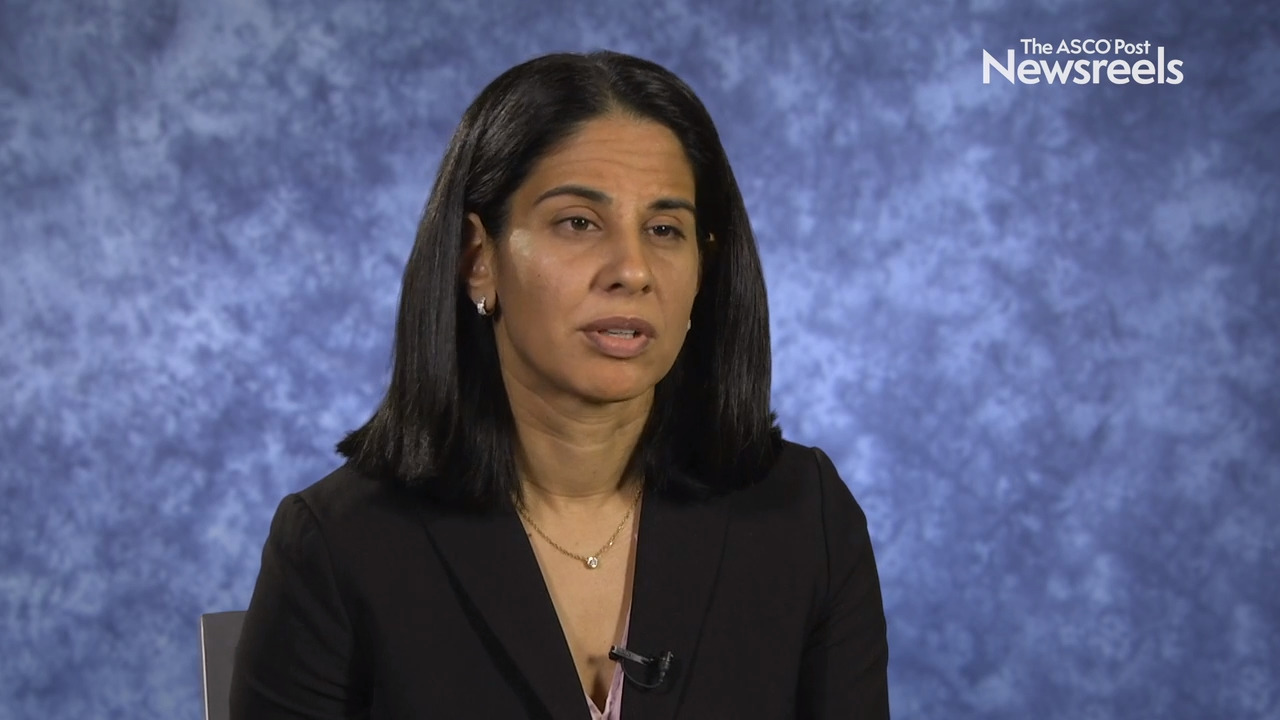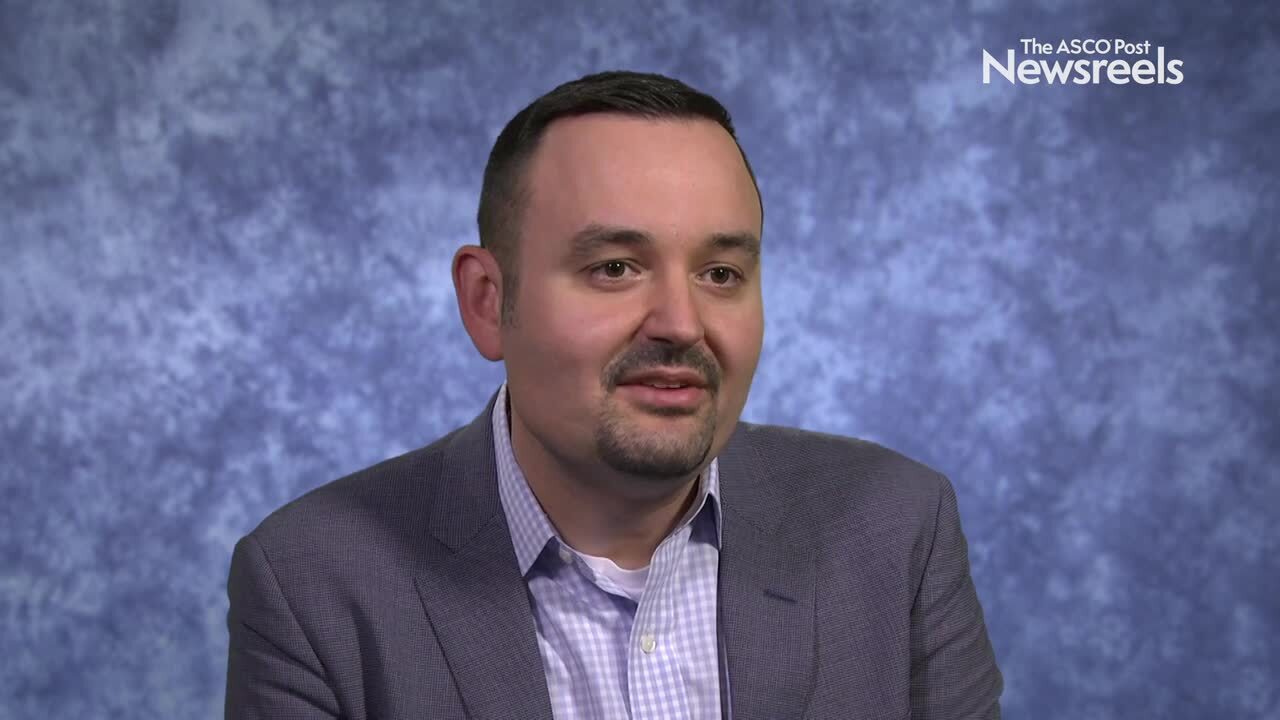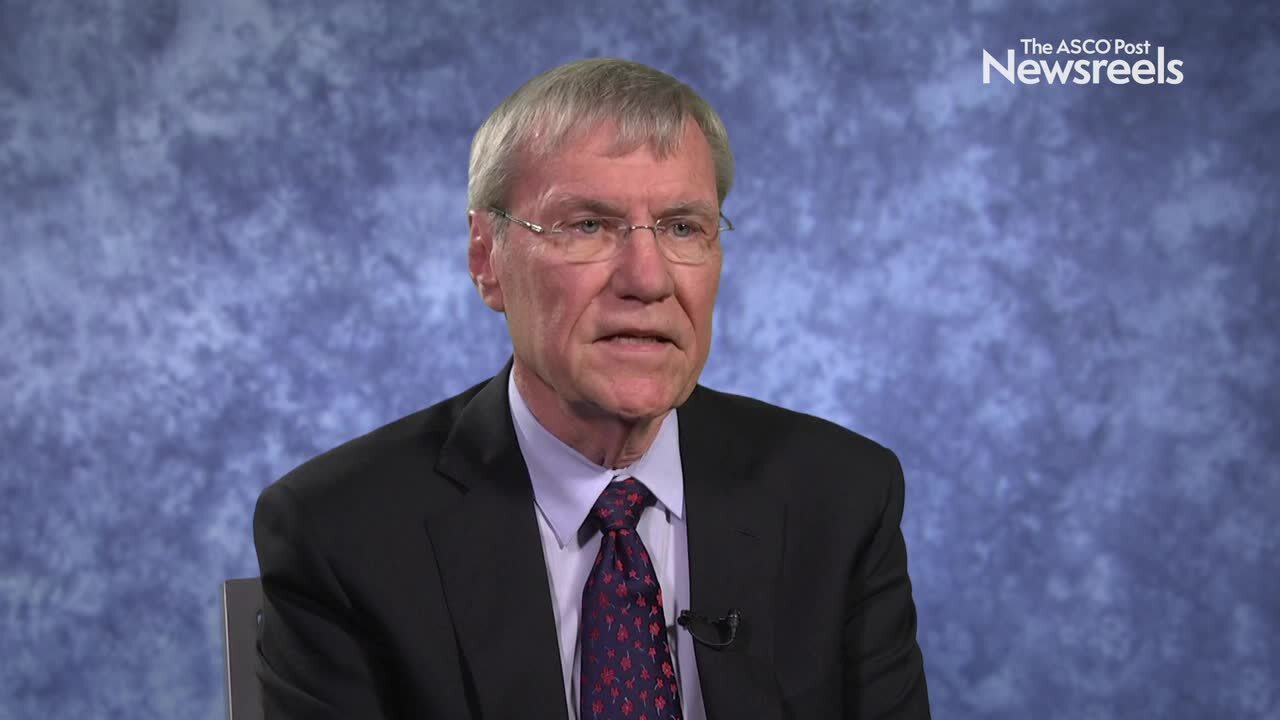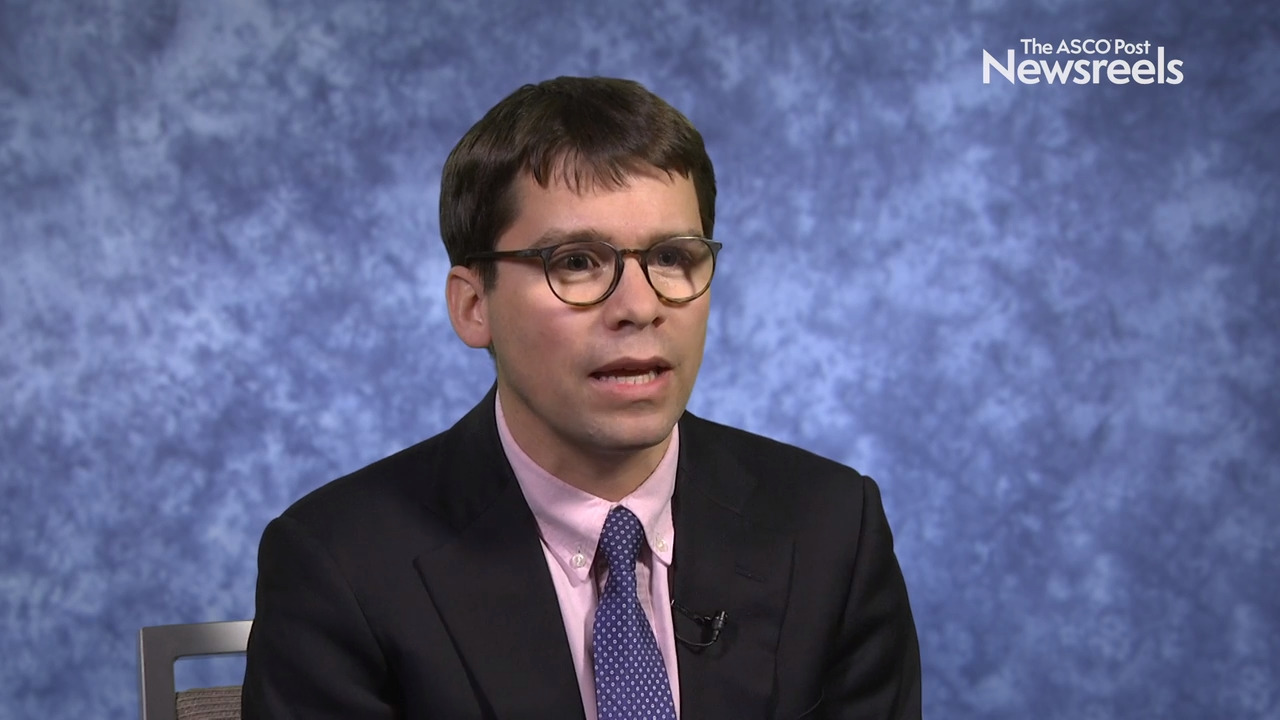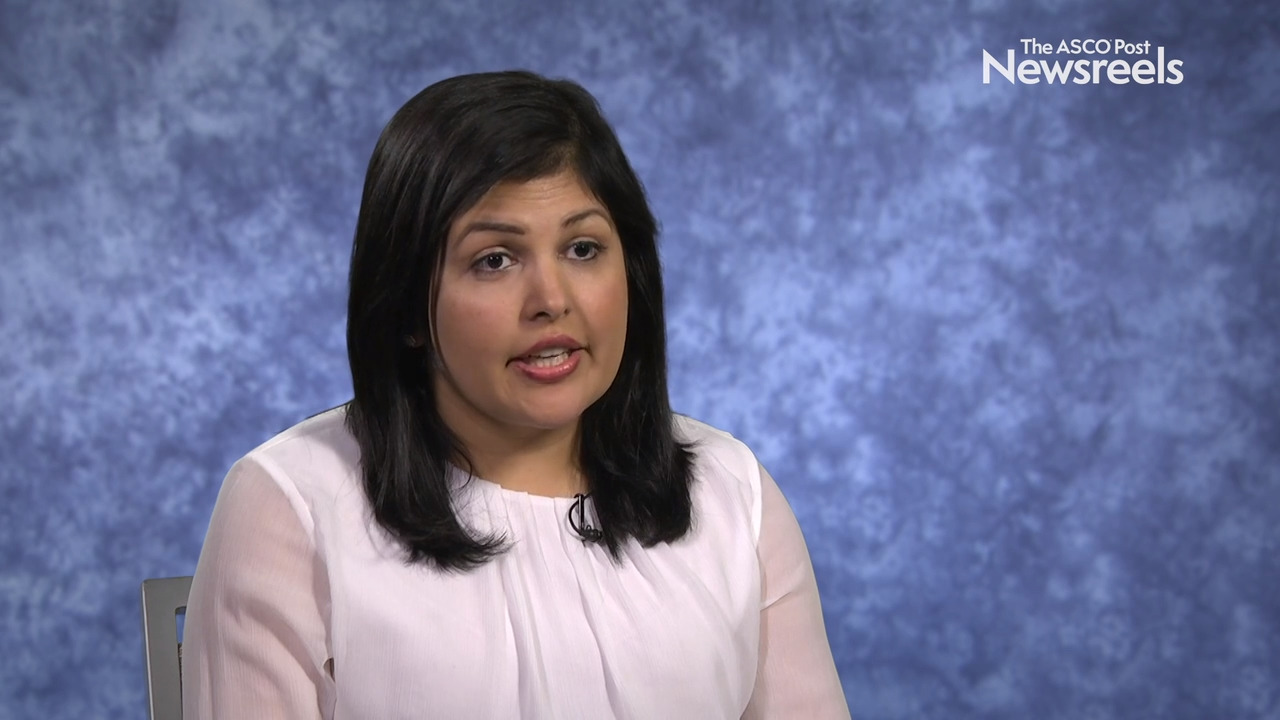Sara M. Tolaney, MD, MPH, of Dana-Farber Cancer Institute, discusses phase II findings on patients receiving T-DM1 monotherapy as adjuvant treatment for stage I HER2-positive breast cancer, a regimen associated with few recurrences in the study population (Abstract GS1-05).
Milan Radovich, PhD, of Indiana University School of Medicine, discusses trial findings that show patients with triple-negative breast cancer who are at high risk of relapse after receiving preoperative chemotherapy can be risk-stratified based on the presence of minimal residual disease as determined by circulating tumor DNA and circulating tumor cells (Abstract GS5-02).
Rowan T. Chlebowski, MD, PhD, of the Lundquist Institute at Harbor-UCLA Medical Center, discusses the long-term influence of using estrogen plus progestin or estrogen alone on breast cancer incidence and mortality (Abstract GS5-00).
Joerg Heil, MD, PhD, of the University Hospital Heidelberg, discusses findings on how accurately this technique can diagnose residual disease and pathologic complete response after neoadjuvant chemotherapy in patients with breast cancer. These data may help tailor, de-escalate, and potentially avoid unnecessary surgeries (Abstract GS5-03).
Rashmi K. Murthy, MD, of The University of Texas MD Anderson Cancer Center, discusses data on the efficacy and safety of tucatinib, trastuzumab, and capecitabine, a treatment regimen under investigation for patients with advanced HER2-positive metastatic breast cancer refractory to standard-of-care regimens (Abstract GS1-01).
